

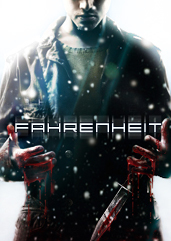
I remember a moment in Fahrenheit when Tyler is asking a witness from the leading murder crime for information for a sketch artist to provide a likeness of the killer. He describes it, in an almost comically patronizing voice, as being rather like a computer game, before asking if she's familiar with the concept of a "computer game". This may have been a subconscious interaction on someone's mind because it's the exact question I would liked to have asked the folk Quantic Dream at that time. Fahrenheit provides an interesting story and a cinematic experience, but it's not a game. Sadly, as a consequence, it's not a lot of fun either. So rather like a movie it's a story told from a few perspectives with fixed camera angles. The plot is muddled and almost definately a collaborative work, a rough attempt to tie set pieces together into a narrative. Graphics and animations are competent enough and a few nice features like multiple frames on screen and some fancy cinematography give it a bit of a movie feel but the illusion quickly wears off as the game goes on. What hurts the illusion most is the extremely repetitive nature of this game. Not just in the interactive model, if it can be called that, but in how the game itself is structured. Challenges are never given in units- Fahrenheit will force you to repeat most challenges at least 5 to 10 times, with little or no variation. Usually there are story ramifications or cinematic events that couple them but that doesn't make them any more interesting to do. Most are in the form of simplistic quicktime events, hitting directions or buttons, others take the form of 3rd person adventuring and some godawful stealth sections. Bothering me further is lack of incentive to replay the experience. On release I remember this game boasting extreme interactivity, with every action having later ramifications. If this is the case I certainly didn't notice it, because beside a few tiny alterations to the plot on my second playthrough and how events are recalled by main characters, the plot at large remains identical. No matter how meticulous you are covering your tracks at the start of the game you'll still be wanted by police. As the game goes on your options become fewer and fewer, increasingly linear with less room for deviation, which is unsurprising but disappointing nevertheless. Being a letdown in what it promises, what it delivers isn't too bad. I had a hard time following the story but it was engrossing enough to see it through to the end. It's a shame it took the direction it did- it's premise was so promising, without giving too much away a more "realistic" conclusion would have been far more satisfying. Some of the cinematic sequences are actually pretty good. Is this one worth the $6 to download? Hard to say- I think most people who play this game probably have conflicted views on it as I do. It's not much of a game, no, but it's innovative and something a bit different. I really respect innovation in game design, especially with today's trail of "me too" tower defences and first person shooters. I just wish it were a bit more fun to play.
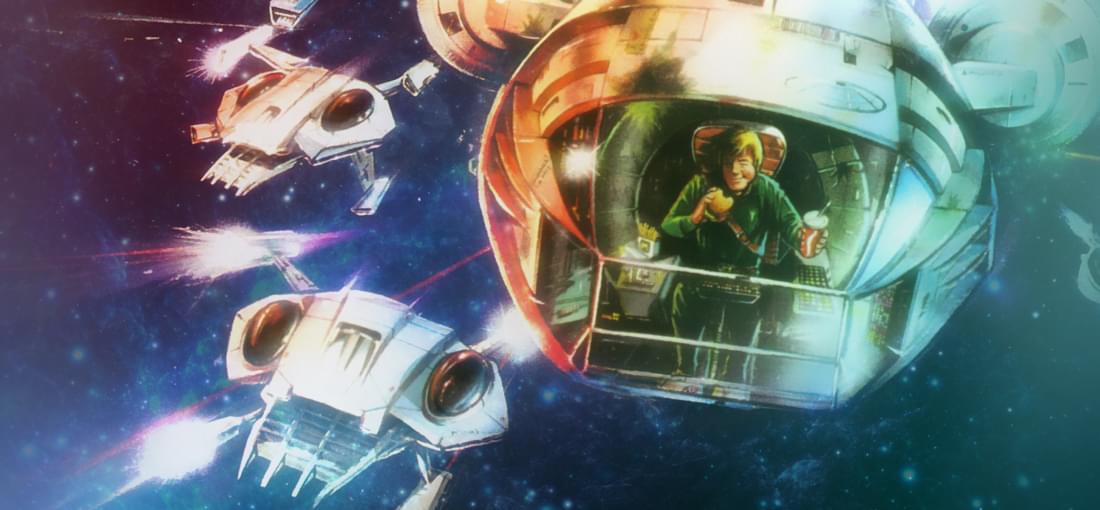
I've always been curious about the early parser based Sierra adventures, and why they never achieved the popularity of the LucasArts games. Now I know the reason: from a modern perspective the original Space Quest trilogy is probably one of the worst suite of games I've ever played. Not because of the crude graphics or I didn't "get" the parser- this game makes so many poor design decisions it often felt as though it was punishing me for even attempting to play it. You'll begin your idiotic journey aboard the Arcada, which will provide you with the first taste of things to come. Death will come quickly from armed soldiers patrolling the corridors, killing all without the foresight to save quickly and often. You'll wrestle with the parser attempting to describe various environmental objects, and the vague descriptions they give you will serve only to frustrate. Objects around the ship are also painfully non-interactive, frequently having precisely one use; the cart retriever had the opportunity to make for an interesting puzzle of information retrieval but instead it just begins what will become a series of irritating puzzles as the game goes on. Attempting to use this machine will also, without warning, kill the player for no reason. Yes, you'll be dying a lot in Space Quest so you'd best get used to it- the many varied and frequently unfair deaths Wilco will suffer on his arduous journey provide the game with what little humor it has, endlessly describing the horrible ways you have killed the protagonist. Some of these are quite funny, but they'll go stale long before the game ends. You will die for failing to notice certain things on the screen, for not moving fast enough, and often for merely being curious about the environment; touching, examining and in one infuriating case merely "looking at" something in the world will often bring the game to an untimely end. It seems this was intentional- often the only way to know how to avoid death is to die at least once to see what happens, bringing the "trial and error" methodology of Limbo to mind- but where Limbo had the sense to make deaths quick and not break flow, Space Quest revels in them, taking several seconds for them to complete before you can restore a save game. Things only get worse from here. Inventory puzzles make up the mainstay of the "text" portion of the adventure but they're often extremely hard to find as there are never adequete textual descriptions of areas, so knowing what is and is not interactive in any given place is a slowly acquired skill. Some puzzles are quite good and do require some logic but many are completely unintuitive relying on very specific solutions, and not just logically but syntactically- you'll find yourself wresting with the parser from start to finish. The worst part of these puzzles is many rely on items gathered throughout the game, but it will never alert you if you missed them- this can lead to points where you have neglected to take an item along only to find an impassable puzzle hours down the track, bringing you adventure to a grinding halt. The text part of the adventure makes up just half of Wilco's adventure, the other half done with a series of graphical puzzles and minigames, these being by far the worst part of the experience. They're nicely varied from playing the slots in a cantina, exploring a labyrinth of ladders and tunnels that you can't see clearly, moving through a maze where touching the walls will kill you, swinging a rope to reach a ledge, the list goes on. Every one of them is boring at best and outright infuriating at worst, requiring frequent saves just to get through. The skimmer section on Kerona was the absolute low point of the experience- it reminded me of early 2600 games, with terrible controls and unfair gameplay. The sections are not fun and add nothing- they merely pad an already thin experience. It's hard for me to name one thing I enjoyed about Space Quest. I stopped playing near the end of the second game, with an event that poignently summarized my experience with the trilogy. A mildly amusing event had occured some time prior- referencing the Aliens films a giant black alien came up and kissed me. Thinking nothing of it I kept playing until a good 15 minutes later Wilco suddenly died from a green creature bursting from his chest. I was gobsmacked- if you didn't know the film you'd have no idea what had happened or why, and even being familiar with the films the event didn't make sense to the canon. The game had killed me, 15 minutes later forcing me to retrace my progress. It wasn't funny. It wasn't clever. It left me angry, irritated, and discouraged from playing any further. And that's why Space Quest fails as a gaming experience; It will have you backtracking constantly searching for items you've missed, arguing with the parser and battling with bad controls. This experience will be broken up only with frequent, meaningless deaths for even the most minor of deviations from Space Quests rigid logic. I can't imagine fans being nostalgic for this thoroughly punishing experience, but if you've never played before then you'd be well advised to think twice before buying.
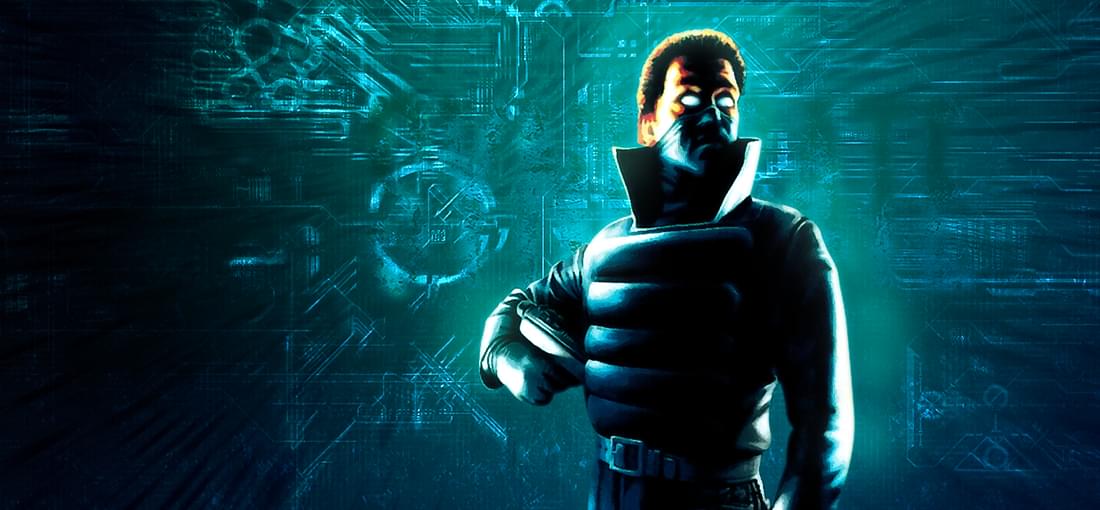
I make no secret of my respect for Bullfrog. In an industry dominated with "me too" companies today it's hard not to look back at the 90's of video games, where genres were still being invented and finding footing in a brave new world. Syndicate is a game like no other to come before it, and few that have come after. Distilled, Syndicate is a game of real time tactics with some overworld management. Set in a dystopian, coprocratic world you are a marketing director for the declining Eurocorp- it is your task to manage a team of cybernetic agents as they perform missions in areas around the world, securing equipment, assassinating officials, brainwashing scientists and waging war with other corporations. All the while you must manage the members of your team, research new equipment and manage funding and taxation of your territories. It sounds complicated on paper but as with all Bullfrog games, low level management and details are ignored or missing- while this means Syndicate is not a deep or terribly hands-on experience (JA2 fans may be put off), it concentrates on the enjoyable parts of the experience. The main portion of the game is missions, and the mechanics of the combat are uncomplicated. You can control one of four, or your entire group of agents, but the are also far more autonomous than in most games. By controlling drugs in the blood stream you can increase their speed, firing accuracy and self-reliance so in a cohesive group your agents can manage themselves quite well. Your main role in combat is tactical- do you send in a team of minigun wielding supersoldiers to storm the prison complex, or do you position snipers across the street to take out guards? Do you keep your enemies at a distance with rifles, ambush them from within the back alleys or attempt to persuade them? These choices will influence the composition of your team and their equipment, as well as the enhancements you decide to install in them as the game progresses. You probably won't remember the slightly anaemic funding management, the largely absent story or the similar nature of some missions. But the fantastic atmosphere the game produces makes you feel like the director of a powerful company. The sometimes shockingly high number of civilian casualties will make you feel morally ambiguous, and the cohesive, effective game play will make you feel in control. It's so disappointing to see the 2012 "sequel" to Syndicate as a Deus Ex inspired FPS. In 2012 the license seems to be following the bandwagon, riding the IP of a company that used to ride its own bandwagons. In 1993 Syndicate was a defining game, a style of game never made before in a way that had never been tried before. Today, Syndicate is still revolutionary, and worth the time of any gamer worth his salt. I should note I played the Macintosh version- having spent time with the DOS version I wholeheartedly recommend the Macintosh in preference due to it's higher resolution graphics and better sound (the core of the game is much the same). The Mac version is however much harder to obtain.
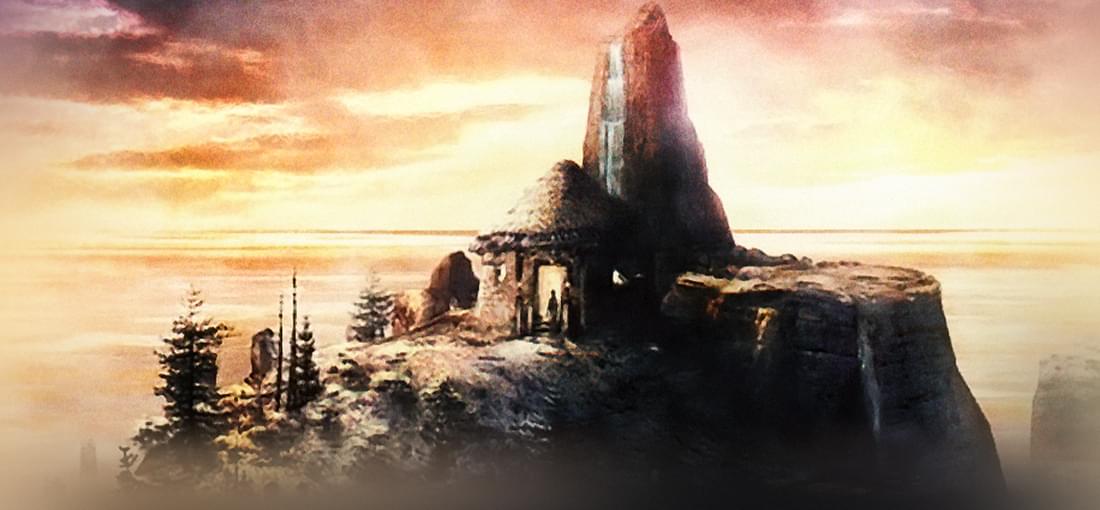
I played Riven as a child and Myst later in life, and something in the story of creating worlds by writing books always spoke to me. Riven was of course far too difficult for me but I still enjoyed visiting those beautiful locations, solving some of the simpler pull lever-open door puzzles. Picking up Uru years later I was delighted to see how well they had brought together my favourite elements of the Myst universe. The game starts in visiting the Cleft where Atrus grew up, almost identical to how I'd imagined it. From there the player is taken to the vast underground city of D'ni, perfectly detailed, and to several other ages that tell the story of the darker side of the D'ni civilization, as well as the failed attempt by archaeologists to revive the city. If you're not familiar with the considerable lore of the series some of this will of course be lost on you but the overarching themes of the story are well clarified in journals and the ever expressive environments. Uru is a hard game, and like its predecessors before it this difficulty is characterized the obscure solutions it chooses for problems. They are much better than those in Riven, with much clearer clues and more obvious indicators of cause and effect. Platforming makes an unwelcome debut in this series, especially at Gahreseen but it doesn't detract enough from the rest of the game to be more than a mild nuisance. The reason I've always had a soft spot for the series and Uru especially is how much the game engages you in the story. It doesn't tell an especially emotive and certainly not present story- you'll feel more like an archaeologist uncovering the truth than actively taking part in it. It's the way the environments are so carefully detailed, and express so much of what the world was, with scattered journals and documents allowing you to piece together what happened. If Uru had better blended it's puzzles with this process it would be perfect. As it stands, it is merely excellent. The Myst series is interesting as I find it is simultaneously overrated and underrated, the graphics especially of the original being such a selling point and being so underwhelming today. As the series has evolved though the core that I have always loved, those detailed worlds and that unstated story that saturates everything you see. The player is narrator as much as he is narrated to, a rare and wonderful thing that shows us just what computer games are capable of. Nowhere are these qualities more refined, and better presented than in Uru.
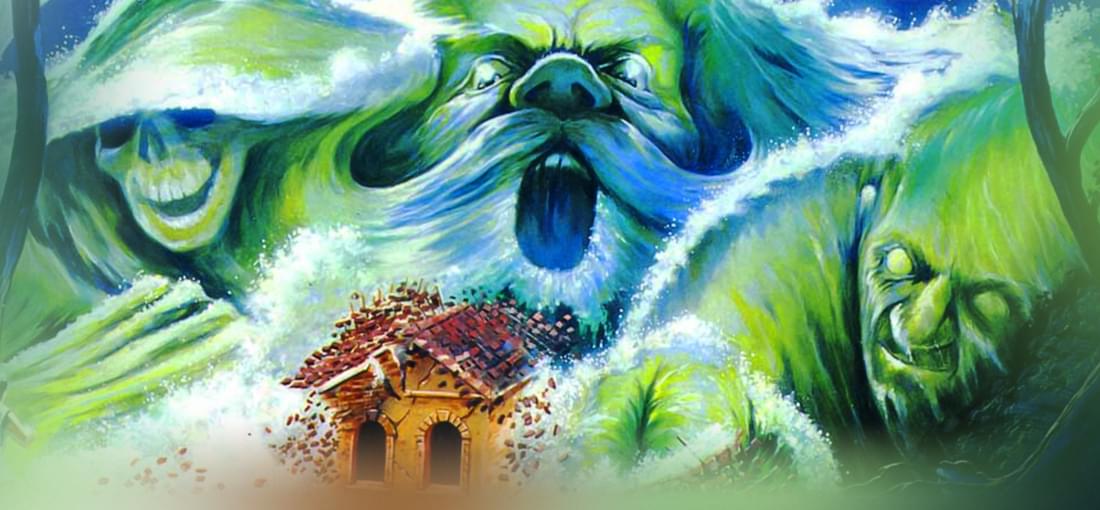
I must have been seven or eight when I got my hands on Populous II, something my parents really need to be held to account for. With the graphic violence and religious intolerance the game seems to preach, only the period game Syndicate could be any more damaging for a young adolescent (which I received at age nine). The story is clever but barely acknowledged in-game- suffice to say you have a group of villagers you can control and your task is to increase their population and use them along with your own godly powers to destroy every person on the map who doesn't believe what you do. How did this game make it past the censors unscathed? Half the game is spent ensuring the countryside is suitable for your villagers to inhabit- this means flattening and raising large tracts of land so they can build increasingly large structures like temples and castles, which in turn generate more population. This often feels more like busy work than anything else but varied landscape and limitations on your powers do enough to keep it engaging for most of the game. As your population grows so does your capacity to cast godly powers, and here things get interesting. You'll start with an uncontrollable column of fire that chars buildings, damages land and cinders villagers with a hilarious animation. Later you'll have the capacity to cast lightning storms, earthquakes, swamps, baptismal fonts, volcanoes and fire rain. Your followers don't just stand idly by too- soon conflicts will break out as they wrestle for territory at the borders. Why not create a leader to start the campaign against your enemy, using the papal magnets? Better yet convert him into a mythical hero like Perseus and Odysseus and use him to devastate nearby villages. If this is all still not enough call an Armageddon- every person on the map will come to the centre for one huge battle royal to decide the winner of the bout. Even to me this sounds like rose tinting, and it is- I have a lot of fond memories of Populous II. I can't deny however that the game isn't perfect- for one the formula doesn't really change from start to finish, with the god powers providing most of the variation. You can't choose these, they're assigned according to the stage which is a bit of a disappointment granted the supposed RPG elements of this game. But that doesn't detract from the experience for me. It remains unique, exciting and vastly enjoyable. Very few games, even modern RTS games are able to produce the same sense of frantic activity Populous II achieves, without bogging you down with unnecessary details- the AI handles the small issues like pathfinding and troop organization so you can concentrate on having fun. Will the contemporary player enjoy Populous II? I really don't know- graphics are charming and aesthetically pleasing but hardly eye-popping, and the gameplay is a bit simple for the modern FPS player. But the refreshing thing about Bullfrog games is how much fun their games were with such simple underlying mechanics. Populous has just the right amount of depth- enough to keep things interesting but not so much as to make the game inaccessible. So I can recommend it to even modern gamers, because fun never gets old.
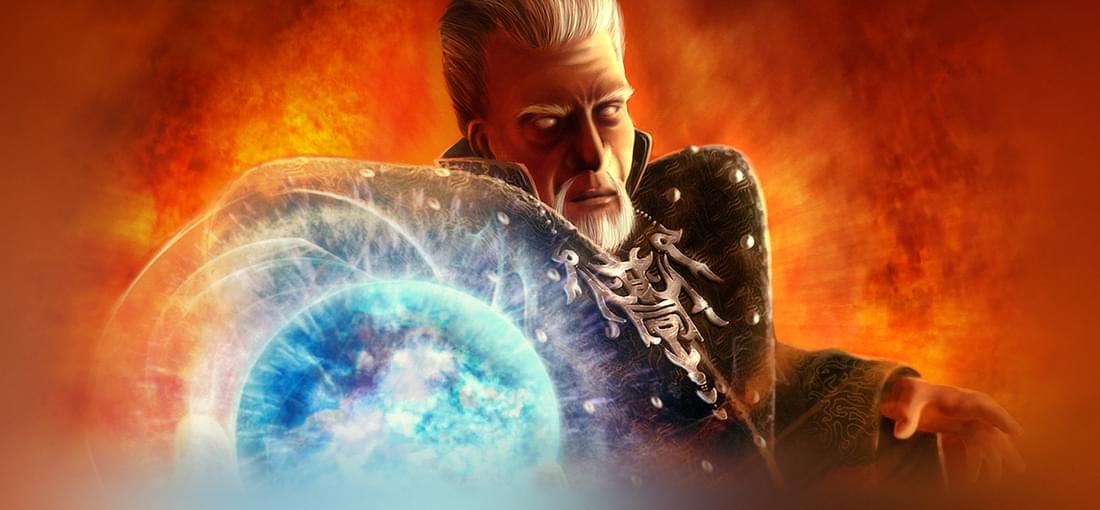
Before I begin I assume this is played with the community patch- absolutely mandatory for this purchase. I'm actually a real fan of Piranha Bytes, I think they do great work. Risen was a graphical masterpiece and a strangely satisfying RPG- I'd read good things about the Gothic series before I got my hands on this in early 2007 but I wasn't quite sure what to expect. The installation touted the soundtrack (which is spectacular) and the graphics (which are also very good), and on paper it looked like a great game. And on paper it is a good game- the screenshots for this one are breathtaking and set that to music and you've really got something. Sadly, once the game starts up so do the problems. To it's credit it's actually very nicely detailed. From the surprisingly well hidden camp of Reddock to the old farmer's cottage near Kap Dun, the world really is brimming with artistic vision of a beautiful game the engine sadly can't do justice to. You'll enjoy shooting down majestic elk in the forest and selling their hides to the local ranger, Jens, and may even earn a few crowns and a slave in the Montera local arena. With a bit of practice you might decide to venture south and learn from the desert merchants of Varant, convene with the Druids to learn the ancient magic or find your way into the capital city of Venguard and make a contribution to the war effort. The RPG and progression system all work beautifully and intuitively, in fact a system the more recent Skyrim has drawn inspiration from to replace it's class-based predecessors. The story is surprisingly engaging with it's painting of moral ambiguity on both sides, something Piranha Bytes seem to do especially well. I loved the setting, the story and the system. So why didn't I like the game? It's a sad fact of life with most games that they are only as fun as the core mechanics, which in this game are just not very well done. Combat especially feels very unfair- enemies telegraph but it's rarely clear if a block or dodge will be effective and it will take some time to get over the haphazard system. Archery and magic are less ambiguous, as they often are, but most enemies attack melee anyway so it doesn't make much of a difference. Repetitive and confusing combat seems like a minor gripe that would be easily overcome if the majestic and sizeable world was as interactive as it seems to promise. At first you almost dare to dream the romping fields and endless forests may house a sandbox RPG but you're quickly brought to the ground with monotonous side quests and poor characterizations. None of the NPC's seem to have much personality, and seem to exist merely to give quests or trade equipment. The quests themselves are extremely repetitive and uninteresting, which is disappointing granted the material provided. Why must I clear another wolf den in the midst of a civil war, when I could be assassinating orcish nobles, freeing slaves, charging castles? Even the epic fights between towns feel monotonous and rather deleterious to your project- complete the same quests for each camp then slaughter everyone in one camp- the second then occupies it and there's nothing left to do but move on to the next pair of towns. This game seems to give the illusion of being a sandbox but it's depressingly linear once you get past the epic scenery. Towns come in sequence through the roughly straight road that runs through Myrtana, and the game expects you to visit the towns and indeed the countries in order. I wanted to visit Varant to learn two handed sword-fighting near the start but the path is filled with monsters that would take many levels playing as a character I didn't want to be just to get there. There are points later in the game you can skip ahead but the sharp difficulty you'll encounter really destroys the illusion this world is one you're free to explore. Yes, this allows for a more graded challenge but as the challenge is already unsatisfying due to the poor game mechanics, so freedom is all that is left. I tried really hard to absorb myself in the world of Myrtana but before long the pretty pictures and the wonderful sountrack were all I had- the rest of the world was impenetrable, uninteractive and devoid of life. Which is such a shame granted the grand vision that Gothic 3 clearly had- a great setting, a good story, every ounce of the game brims with incomplete innovation and untapped ideas. Some of these came to life in Risen, a game I can really recommend. Can I recommend Gothic to the world of 2011? I'm sorry to say that I can't. But if you can see past the screenshots and think there's a great game behind this then please buy it; I can't wait to see what Piranha Bytes come up with next.
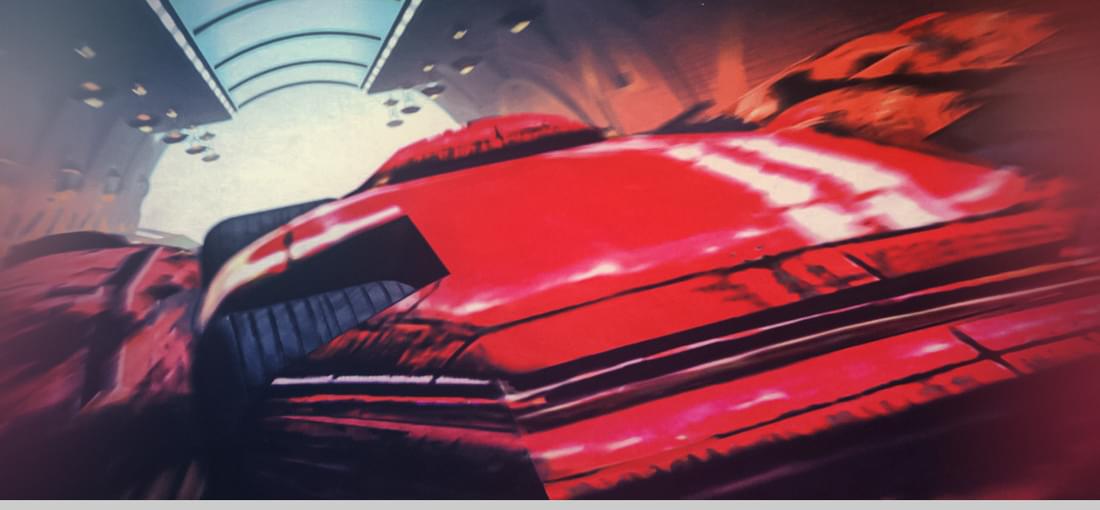
I picked this up very cheaply from a collectors market a year or so back, and now realize the cheap price was because this game is nigh impossible to run on modern computers. I spend almost a week trying to set up my computer to run this Win95 game, designed for the then-new Intel Pentium processors alone. Even my friend's 95 machine couldn't get it running. Thankfully for POD enthusiasts my trials have now been rendered unnecessary, and my hat goes off to GOG for successfully restoring this game, perfectly playable, surprisingly high-res and bug free. Having now had the chance to spend a bit more time with POD it's actually pretty unremarkable, although very well executed as a racer. I don't believe graphics will wow players today quite as they were intended to on release- car models are nice but a lot of the textures and skyboxes especially are just a bit too garish for me. Race courses are highly varied both in appearance and racing strategy however, and there's a great sensation of weight imbued in the cars; not only in how they handle but how they shunt as they crash into one another. Besides this, POD is pretty no-frills- for a general idea think RatBag's Powerslide crossed with Midways SF2049. It's nothing revolutionary by today's standards but it's damn well executed and a lot of fun. Now, finally, we can all appreciate it from the comfort of our modern computers for a fee of $6, and believe me, having done it the hard way I can guarantee you is an absolute bargain!
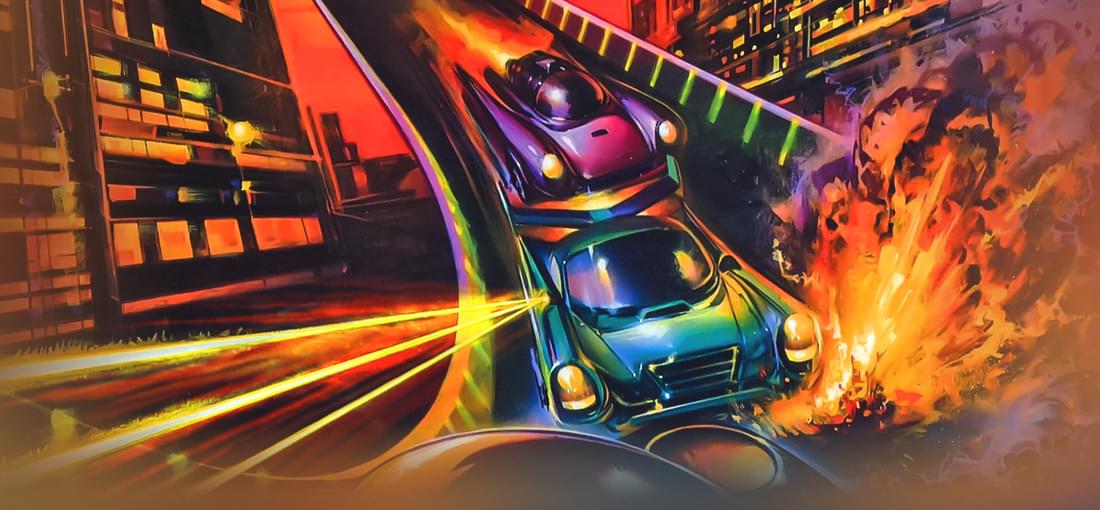
Being the fan of video gaming curiosities that I am, I was pleasantly surprised when picking up MR1, on virtue of it's title alone, for $2 at a market. MR1 is technically just a racer, but there are so many things that make it unique that feels like much more than that. The first thing you'll notice when you boot it up is the lengthy and surprisingly entertaining FMV cutscenes. Our eccentric host Lance Boyle will introduce the confusing setting through the medium of a popular TV program in the future. His quirky sense of humor and sometimes downright creepy manner lend the game a lot of its character, though the setting often feels artificial and irrelevant out of these cutscenes. The second abnormality MR1 exhibits is that every element of it's gameplay is done using FMV graphics. Each course is actually one long, pre-rendered film strip of a 3D race course, the speed of the strip being dependent on the speed of your car. The obvious limitation to this process is it's impossible to deviate even slightly from the track, and all tracks have to be essentially uniform in composition, so the effect is purely a visual one. Challenge is added to the raceway by symbols, similar to Wipeout, that can positively or adversely affect speed, energy, and other attributes while racing. Finally, the game play is not quite standard racing fare. Graphical limitations allow only one racer to be visible at any one time, but the player is allowed to defeat them any way they like- they can pass them like a traditional racer, or bump them against the edge of the track or even shooting them with on-board weapons. MR1 is quite emphatic on this point- you can, and should, defeat your opponents any way you like. Is MR1 a good game? That's a much harder question to answer. I must admit the FMV took a long time to get used to but once I started to memorize track layouts I really started to get into the game. Victory is predicated on hitting the right symbols so memorizing the tracks is essential. That said, there's no rubber band here and the progressive method of game play coupled with the strict time limits on each race make the game rather unforgiving and hitting the finish line seconds before passing your nearest rival can be very frustrating. I get the feeling how much fun this game is to individuals will be highly subjective. But good or not, Mega Race is undeniably unique.